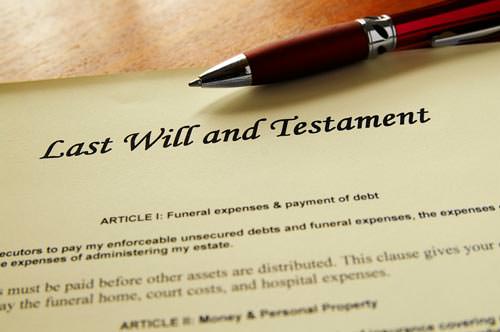3 Things Everybody Ought to Know About a Last Will and Testament
Download Our Free Estate Planning Guide
1.) Needing a Will
A will is one of the most fundamental documents that you can have as far as state planning is concerned. A will allows you to decide who you want your assets to go to, allows you to decide who’s going to be the guardians of your children,w ho’s going to take care of the assets on behalf of your children, who’s going to probate your estate, who’s going to be the executor, and who’s going to be the substitute executor? If you don’t decide, then the state of New York has to and we really don’t want to allow that to happen.
Summary:
- A Will allows you to decide who you want your assets to go to, who will be the Guardian of your children, and who will take care of your Estate.
- New York State will decide these for you if you do not create a Will.
2.) Changing Your Will
Wills in New York State can be changed very easily, I have all my wills filed in the Erie county or the county surrogate’s court for safe keeping. The wills are filed there, if there’s something happens to you, they are readily available for the surrogate’s court. If you want to change it, I simply have you sign in an authorization allowing me to pull the previous will; I file a new will, with what the changes are that you wanted, or for that matter, if there are only minor changes such as changing the name or adding a child to the will. As a Buffalo Estate Planning Attorney I simply file a request along with the pre-existing will in the surrogate’s court and have that filed along with the will for safekeeping.
Summary:
- You Will is readily available to you whenever you need access to it.
- You have to sign an authorization, allowing your attorney to pull your previous Will, and file a new will.
3.) Dying Without a Will
If a person dies without a will, the state of New York has to determine who’s going to take care of your estate. That means they’re going to appoint an administrator and if you haven’t designated someone, the court has to decide who that administrator is going to be. If you have family members who want to act on your behalf and there’s a conflict within the family, the court then has to run a hearing to determine which party is going to be more suitable. If the court decides that there is such a conflict within the family, the court could even appoint a public administrator to act on your behalf or on the behalf of your estate.
So for no other reason, you want to make certain that you have a will in place to make certain that you’re appointing your executor and that the surrogate’s court knows who you trusted in deciding to handle your estate. Besides that, you want to have a will in place in order to make the certain of the court appoints those who are going to take care of your children, called the guardians. Guardians are the individuals with whom your children are going to live with on a daily basis. The trustees who take care of the assets on behalf of the estate, to make certain that the assets are going to be turned over to the children at an appropriate age that you designate rather than the surrogate court decides would be the legal age which is 18 years in New York State.
Many instances, you don’t want your children getting their assets or the estates benefits at the age of 18. I generally recommend an age of 22, because I’d like to get the kids through a 4 year program or college, I’ve had people extend it to 25 or 31, or even older age depending upon the circumstances. There are also situations where you have children who might be disabled and you want to make sure that they are provided for and taken care of for their lifetime, for that matter, and you don’t want the surrogate’s court deciding who’s going to take care of your children, you don’t want the surrogate’s court deciding who’s going to take care of your assets.
Summary:
- The court will determine who your Administrator will be if you die without a Will.
- If there is a family conflict with who wants to be your Administrator, the court will determine who is most suitable for the position.
- If the conflict is so serious, the court may appoint a public administrator to act on the behalf of your estate.
- You will want to have a Will so that it can be determined who will take care of your children, and who will receive various assets.
- It is not recommended to leave your assets with your children once they turn 18, You should allow them time to mature, or allow them time to go to college.
Are you thinking of creating a Will for your estate plan? Let one of dedicated Lawyers walk you through the creation of a will to ensure your property goes where you want it.
This informational blog post was brought to you by Randy H. Gugino, an experienced Estate Planning Lawyer in Buffalo, NY.







